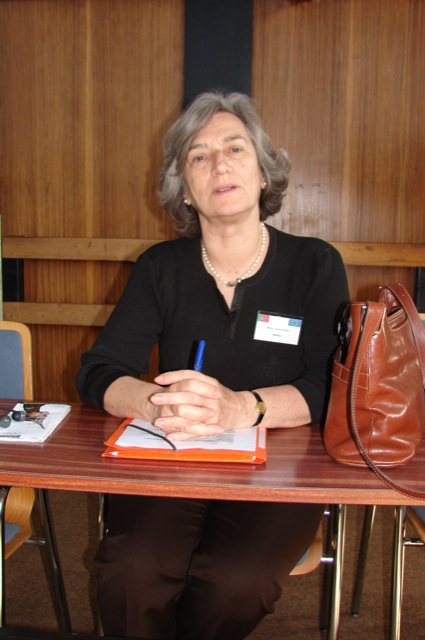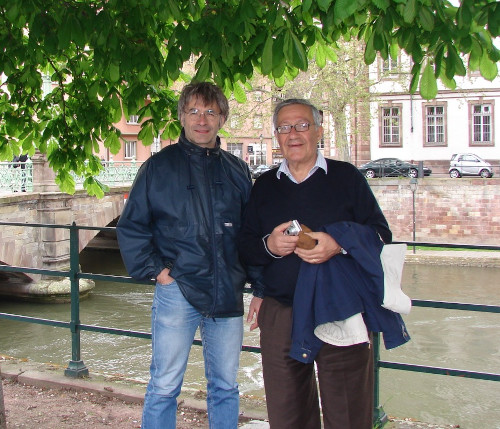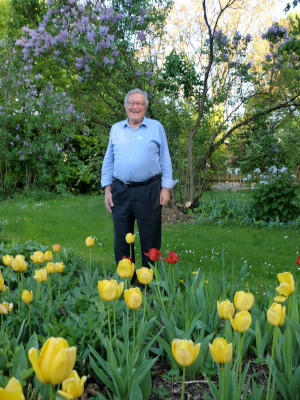 Maria João was born in Lourenço Marques, now Maputo, and attended a convent school until the fifth grade, then moved to the Salazar High School, where she completed her high school education.
Maria João was born in Lourenço Marques, now Maputo, and attended a convent school until the fifth grade, then moved to the Salazar High School, where she completed her high school education.
From her childhood spent in Africa, she remembers happy times. The pleasant climate, the friendly people and the quality of life, which was nothing compared to similar times in Lisbon. According to her, in Mozambique the houses were larger, usually with a garden, and it was not necessary to be rich to be able to play tennis or ride horses.
She was in her early twenties when she came with the rest of her family to Lisbon (1961). A decision that pleased her, as she was aware of the excellent job opportunities that awaited her in the capital. As she was fluent in French and English, she quickly found work as a translator.
When the 1974 Revolution took place, at the age of thirty, she was a militant Catholic in various capacities and movements, such as the Teams of Our Lady and the Regional Committee of Catholic Teams. She remembers having lived that moment as a breath of fresh air, which is why she claims to be "a devotee of the 25th of April, because it was thanks to the revolution that the Portuguese were able to have rights, freedoms and guarantees"
She was at Sá Carneiro's side in the creation of the Popular Democratic Party (PPD), founded on May 6, 1974, and together with her husband, who was a friend of Francisco Sá Carneiro, joined it a week later.
This militancy marked a before and after in their lives. So much so that she states, without hesitation, that the happiest years of her existence were those of her marriage and the period between 1974 and the death of Sá Carneiro (1980).
A staunch defender of women's rights, she is proud to have fought, with the support of Snu Abecassis, so that during the coalition government of the AD, the CDS would not be part of the Commission for the Condition of Women in the Secretary of State for the Family, which would have represented a setback in women's rights, as it would be the recognition that their life was limited to the family.
She maintained an intense party activity: she was part of the National Council and the Bureau of the Congress, and it was in this capacity that she integrated, for example, the Portuguese women's delegation that was invited by Ambassador Alcides Sakala, UNITA's representative in Portugal, to visit Jamba.
In 1992, she was part of the team of International Observers who monitored the elections in the People's Republic of Angola, a moment that gave her great satisfaction for the manifestation of civility, which in no way foresaw the terrible events that would happen next.
She was also an International Observer in the Guinea-Bissau elections (1994), then supported for several years the political regime that both Jonas Savimbi and Joaquim Chissano defended for their countries: Democracy.
In the same year, Maria Barroso created the Pro Dignitate Foundation, with the aim of preventing violence and promoting human rights. Maria João Sande Lemos accompanied her several times to Mozambique during the war process between Renamo and Frelimo.
She remembers, in particular, a trip to South Africa, where they met with Gatsha Buthelezi, and in which, after returning to Mozambique, Dr Maria Barroso asked President Joaquim Chissano to create a corridor for peace, through which those fleeing from Mozambique to South Africa could pass alive in Ressano Garcia, the border post between the two countries. The President agreed, and this was one of Dr Barroso's great victories.
Another of the causes in which she has always been committed was the defense of the rights of women and children, having participated, in 1995, in the delegation of the Commission on the Status of Women that was present at the Fourth United Nations Conference on Women, in Beijing. At the time, Maria João Sande Lemos was an advisor to the Secretary of State for Justice, Dr. Maria Eduarda Azevedo, who had been appointed by Professor Aníbal Cavaco Silva, Prime Minister at the time, as responsible for the affairs of this Commission.
She still remembers the emotion she felt for participating in such an important meeting, in which the future of women worldwide was discussed, and she says that she was very disgusted when she found that the Vatican delegation always voted on the proposals in line with countries such as Saudi Arabia or Qatar, demonstrating a conservatism that greatly displeased and saddened her.
In 1997, she was one of the co-founders, in our country, of the International Catholic Movement "We Are Church" (NSI), which defends the democratization of the church and the valorization of women's rights, including all roles, in addition to considering it essential to end mandatory celibacy. But the balance of the more than twenty-five years of activity of the NSI leaves her very disappointed and pessimistic about the renewal of the Church, because she recognizes that although there is a widespread feeling that things should change, she does not see any change in the misogynistic mentality of the hierarchies, She also regrets that Pope Francis seems to have not succeeded in reversing the lack of representation in the Vatican, which, in his view, "functions in an autocratic way."



